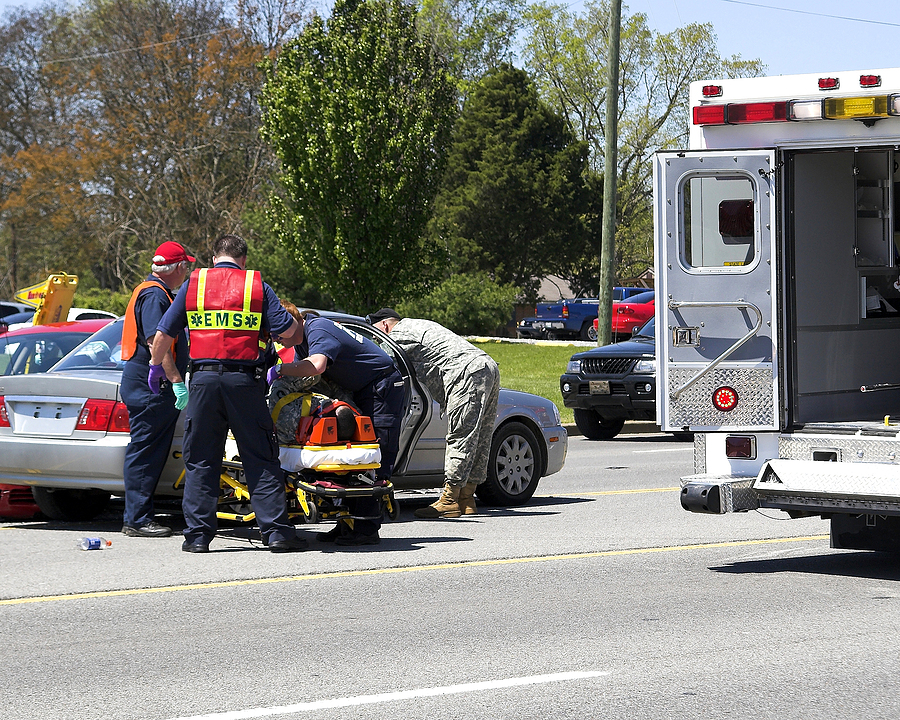
Any kind of car accident that takes a life is tragic. When the at-fault driver is the one who dies, any other motorists who were severely injured may be hesitant to take legal action. Unfortunately, the hard truth is that those who were badly hurt will still face extremely high medical bills. And they will also suffer other types of monetary losses. They’ll still have to take action to recover those losses.
At The Eberst Law Firm, we completely understand how difficult it can be for accident victims to file lawsuits when the motorist responsible for the collision dies. But we also realize how important it will be for those victims to make sure their rights are protected. If you’ve suffered a severe injury in a car wreck that was not your fault, we will help you do just that, while maintaining complete respect for the deceased.
If you would like to learn more about how we may be able to help, please contact us online. Or give us a call at 1-888-CALL-JON to schedule a free consultation.
Can I Still Pursue My Case if the At-Fault Driver Died?
In a car accident case, any claims for compensation will come down to whether or not someone committed negligence that caused the collision to occur. In most instances, the death of a negligent party is typically not relevant to the claim’s validity. That might seem cold. But that’s the way the process works.
The death of the negligent driver will probably not have much of an effect on your personal injury claim. Whether or not that driver’s insurance company agrees to pay a fair settlement. If the insurer refuses to do so, you will likely have to file a lawsuit against the insurer in order to obtain the compensation you deserve.
Florida law mandates that the severity of a motorist’s injuries will determine whether or not they can take legal action against an at-fault driver’s insurance company. Those injuries must meet a certain threshold in order for the victim to be able to file a lawsuit. They must lead to permanent and significant scarring or disfigurement. Or permanent and significant bodily function damage. This can include loss of vision, hearing, or movement.
If you’re not sure whether or not your injury meets this threshold, please get in touch with an experienced attorney as soon as you can.
How to File a Lawsuit Against a Deceased Negligent Driver
If you are severely injured, and the deceased at-fault driver’s insurance carrier refuses to offer fair compensation, you’ll only have one course of action. To file a personal injury lawsuit against that carrier. In order to have the best chance of achieving a positive outcome, you’re going to need hard evidence that you weren’t to blame for the accident.
These are just a few of the types of evidence that could help prove your case.
- Cell phone records
- Video from nearby security cameras
- The police report
- Medical bills
- Witness statements
- And others
Will Their Insurance Still Cover My Damages?
The answer to that question depends on what type of coverage the deceased had. All drivers are required by law to at least carry liability insurance. However, there are still many motorists who fail to do so. That’s why it’s so important that drivers who are responsible enough to carry insurance also carry uninsured/underinsured motorist coverage.
If the deceased did have proper coverage, then it should be able to pay for the damages, or economic losses, you’ve incurred. These include the medical bills and lost wages referred to earlier. There are times where an insurance company adjuster will try to employ some questionable tactics to either deny or substantially reduce the amount of money you ultimately receive.
On the other hand, if the at-fault driver who passed away either didn’t have coverage, or their policy isn’t sufficient enough to pay for your damages, then you might have to file a claim against that person’s estate. This may involve matters of probate, which can quickly become rather complicated.
In either of the above two scenarios, you’re going to need the help of an experienced attorney. If you don’t have legal representation, there’s a very high likelihood that you won’t be able to get the money you deserve. That could lead to years of financial misery.
You Should Still File a Lawsuit
Again, it’s understandable that you might not want to file a lawsuit in order to obtain equitable compensation for your injuries. You may feel that you’ll be suing the deceased’s family members, adding even more stress to an already horrible situation. But you won’t have to do that. You’ll be taking action against an insurance company, not the family.
Your right to compensation must be pursued. Otherwise, you’ll be responsible for all of the expenses associated with your accident. Even though all of this happened through no fault of your own.
It’s possible that you won’t have to file a lawsuit at all. If you have a skilled attorney working on your behalf, they could convince the insurance company that it should offer you a fair settlement. One that can help you put this terrible situation behind you so you can get on with your life. Attorneys can often make a very strong case on your behalf, backed with undeniable evidence. As a result, your case will probably never have to see the inside of a courtroom.
Find a Car Accident Attorney As Soon As Possible
You obviously have compassion for those affected by the loss of their loved one. But if you’ve suffered a severe injury due to the negligence of a motorist who did not survive the accident, you’ll have to protect your best interests – as well as those of your own family.
The Eberst Law Firm has a team of car accident attorneys who are ready to help. Please contact us online or call 1-888-CALL-JON for a free case review to learn more.
